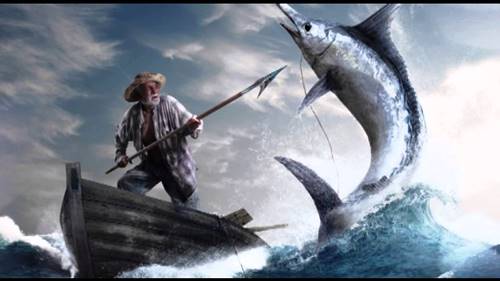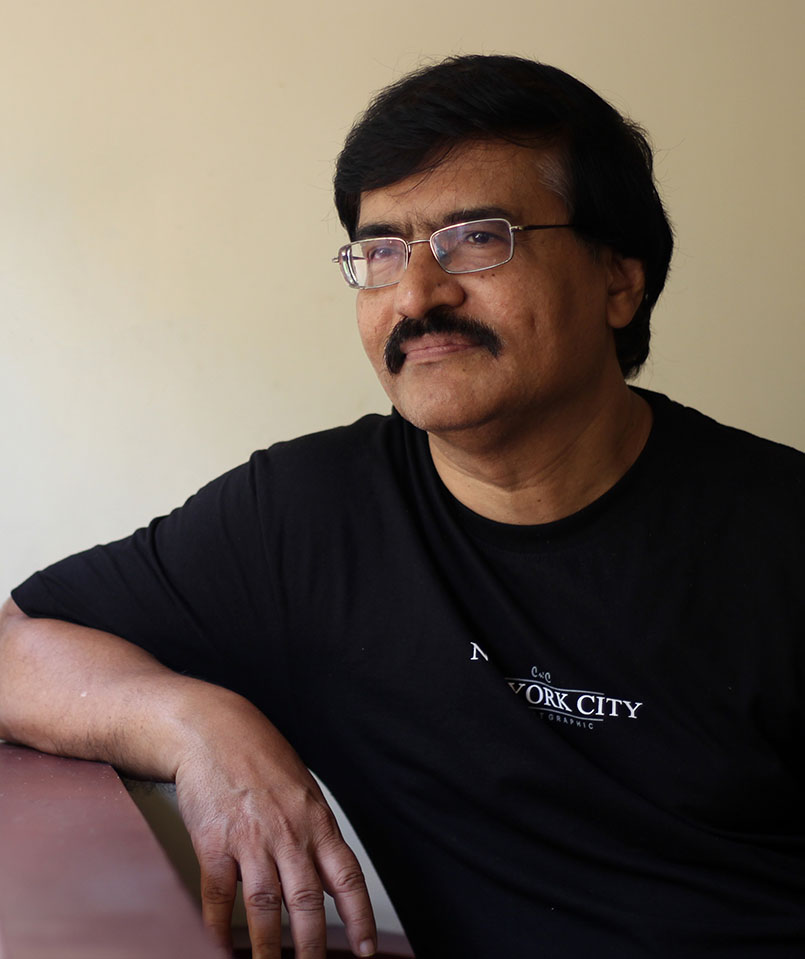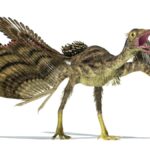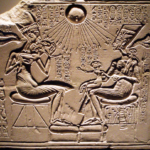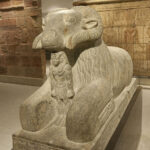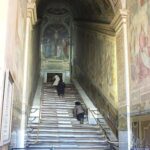“The world breaks everyone, and afterward, many are strong at the broken places.”
― Ernest Hemingway
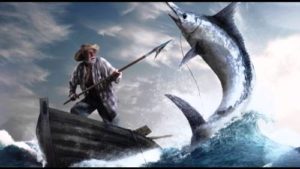 The title of this post comes from the book, ‘The Old Man and the Sea’, the last novel American author Ernest Hemingway published before he committed suicide in 1961. It received a lot of critical and commercial success. This work was a major factor in Hemingway being awarded the Pulitzer Prize for Fiction in 1953 and the Nobel Prize in Literature in 1954. According to its author, the novella is fiction based on many actual occurrences. I have read this story several times. Each time, it left a dull ache somewhere deep inside my heart.
The title of this post comes from the book, ‘The Old Man and the Sea’, the last novel American author Ernest Hemingway published before he committed suicide in 1961. It received a lot of critical and commercial success. This work was a major factor in Hemingway being awarded the Pulitzer Prize for Fiction in 1953 and the Nobel Prize in Literature in 1954. According to its author, the novella is fiction based on many actual occurrences. I have read this story several times. Each time, it left a dull ache somewhere deep inside my heart.
This is an attempt to summarize the story, on the request of some of my friends who read another story by Hemingway, ‘The Old Man at the Bridge’, summarized in another post (Click here to read it) This story seems to be replete with symbolism. So, I have also briefly dealt with this aspect of it.
The Story
Santiago was an old and withered Cuban angler, racked and gnarled by decades of drudgery. The brown blotches of sunburn on his cheeks ran well down the sides of his face. His hands had the deep-creased scars from handling heavy fish on the cords. But none of the scars was fresh – a sign that he had not been lucky to catch any big fish recently. But his blue eyes were cheerful and undefeated. And he continued to fish since his life was fishing.
Santiago had a young boy name Manolin as partner. He had joined Santiago at the age of five. But after Santiago went without fish continuously for forty days, the boy’s parents forced him to join another boat. The old man now fished alone. Yet, the boy still went down to the beach to extend the old man a helping hand at early dawn when he put out to sea and late in the evening when he returned to the shore. For another forty odd consecutive days after the boy left, the old man sailed back to the shore with no fish in his skiff. The boy was sad.
Santiago was pathetically poor. He lived alone in a sparsely furnished shack on the hillside. Santiago confesses that he is not a religious person. Yet, there is a picture of the Sacred Heart of Jesus and another of the Virgin. The pictures are relics of his wife. Once there had been a tinted photograph of her on the wall. He had taken it down because it made him feel too lonesome.
The villagers branded Santiago as the unluckiest man. Although he could not catch any fish during the past eighty-four days he did not lose hope. “Eighty-five is a lucky number,” the old man said. “How would you like to see me bring one that weighs over a thousand pounds?” he asked the boy. “There are many good fishermen and some great ones. But there is only you”, said the boy.
Before dawn on the eighty-fifth day, Santiago set out to the sea as usual. The boy was there to assist him. The old man slowly drank the coffee the boy had brought. He carried no food in his skiff. Only a bottle of water was there. “Good luck old man”, said the boy.
It was still dark and Santiago rowed his skiff out of the harbour. Soon, he left the smell of the land behind. Before it was light, he had his baits out. One was down forty fathoms. The second was at seventy-five and the third and fourth were down in the blue water at one hundred and one hundred and twenty-five fathoms. (A fathom is equal to six feet.) The sun rose thinly from the sea. He looked down into the water and watched the lines. “My big fish must be somewhere”, thought the old man.
As Santiago watched, a small tuna rose in the air, turned and dropped head first into the water. Soon there were tunas jumping in all directions. Just then, the stern line came taut under his foot. It was a tuna. He hauled the line in and swung the fish over the side and into the boat. The sun was hot now. Sweat trickled down his back as he rowed. Then, he saw one of the projecting green sticks dip sharply. Then it dipped again. This time he knew exactly what it was.
One hundred fathoms down a marlin (large long-jawed oceanic sport fish) was eating the sardines. And the sardines covered the tuna that the old man had lowered. It had a hand-forged hook jutting out from its head. The old man prayed that the marlin would swallow the tuna along with the sardines. He waited. Then there was the delicate pulling of the line again. “He’ll take it,” the old man said aloud. “God help him to take it.”
The old man knew that it was a huge fish. He pulled the line in. “Come up easy and let me put the harpoon into you”, he murmured. The fish just moved away slowly. His line was strong. The boat began to move slowly off toward the north-west. He held the line against his back and watched its slant in the water. The skiff kept moving steadily to the north-west. “This will kill him,” the old man thought. “He can’t do this forever.” But four hours later, the fish was still swimming steadily out to sea, towing the skiff.
Santiago was thirsty. He did some skilful manoeuvring so as not to jerk the line to get at the water bottle. He took a sip and rested against the bow. He looked behind him. He saw no land. The sun went down. Santiago hoped that the fish would get tired and come to surface before it turned dark. But the fish continued on its journey pulling Santiago and his skiff far out into the sea. The night was cold. He looked at the stars and checked his course. After a while, the skiff slowed down a bit. “I wish I had the boy… No one should be alone in their old age,” he thought.
Santiago never had such a strong fish or a fish that acted so strangely. The fish could not have known that his foe was just an old and feeble man. The boat kept moving. Soon it was his second day on the sea. “He’s headed north,” the old man said. When the sun climbed further, the old man realized that the fish was not tiring out, as he had hoped. But the slant of the line showed that it was swimming at a lesser depth. That did not necessarily mean that he would jump to the surface. But he might. “God let him jump,” the old man said. A jump into the air will fill the sacks along the marlin’s backbone with air, which would prevent the fish from going deep down to die. Santiago knew that if the fish went down to die, he would never be able to raise it to the surface.
Just then, the fish gave a sudden lurch that pulled the old man down onto the bow. But for his experience, Santiago would have been thrown overboard. His hand was cut and it started bleeding. He had to eat to keep his strength to battle the huge fish. He cut strips of dark red meat of the small tuna he had caught. He chewed the meat wishing he had some salt. Santiago’s left hand became cramped. If the fish jumped, Santiago could kill it. But if it stayed down forever, he too would stay down with him forever. He rubbed his cramped hand against his trousers and massaged it with the other hand. It slowly unknotted.
After a while, he noticed the line slanting slowly upward. “He’s coming up,” he said. The line rose slowly and steadily and then ahead of the skiff, the surface of the ocean bulged and the fish came out unendingly. It raised its full length from the water and then re-entered it, smoothly, like a diver. “He is two feet longer than the skiff,” the old man said.
Santiago had seen big fishes that weighed more than a thousand pounds. He had caught two of that size in his life. But he was not alone then. Here, old Santiago was alone in a vast sea, and out of sight of land, in the company of the biggest fish he had ever seen or heard of. “He jumped almost as though to show me how big he was,” the old man thought. “I am not religious,” he said. “But I will say ten ‘Our Fathers’ and ten ‘Hail Marys’ that I should catch this fish, and I promise to make a pilgrimage to the Virgin of Cobre if I catch him. That is a promise.”
Santiago’s second day on the sea was ending. The boat still moved slowly and steadily. He knew the night would come soon. He felt dead tired and lay against the worn wood of the bow. The first stars were out above him in the sky. He had no idea what the time was. He knew that he had to sleep to be ready for the inevitable final showdown with this massive fish. He lay forward and was soon asleep. And he dreamed of mating porpoises; of him sleeping on his bed and feeling cold; of lions on a long yellow beach somewhere far away…
Santiago woke with the jerk of his right fist coming up against his face and the line burning out through his right hand. Just then, the fish jumped making a great bursting of the ocean. It fell heavily into the water and jumped again and again. It was dark and Santiago could not see the fish. He only heard the breaking of the ocean and the heavy splash as the huge fish fell. He knew that the sacks along its back were now filled with air and the fish would not be able to go down to the deep to dash all his dreams.
Santiago saw the first lights before sunrise for the third time since he had put out to sea. “Let the fish begin to circle and let the fight begin,” thought Santiago. After a while, the fish started to circle. “It is a very big circle,” he said. ‘Perhaps in an hour I will see him.” But the fish kept on circling. Two hours later, the old man was wet with sweat and tired deep into his bones. He felt dizzy. “I could not fail myself and die on a fish like this,” he murmured to himself. “God help me endure…’ Just then, he felt a sudden banging and jerking on the line. It was sharp, hard and heavy. The old man once again felt dizzy. Before long, he saw the fish – a dark shadow that took so long to pass under the boat. He could not believe its length. ‘I must get him close, close, close, he thought. I must not try for the head. I must get at the heart.’
Finally, the fish came over and swam gently along the skiff. The old man lifted the harpoon as high as he could and drove it down with all his strength He felt the iron go in. He leaned on it and drove it further pushing all his weight after it. Then the fish raised itself out of the water, hung in the air for a moment and then fell into the water with a crash. It was very much dead. “I am a tired old man. But I have killed this fish…” Blood oozed copiously from the wounds of the dead fish. Like a cloud, it started spreading in the water.
The dead marlin floated with the waves. The skiff was not strong or long enough to carry it. The time was around noon, the third day. And the trade wind was rising. The old man pulled the skiff upon to the fish. ‘It must be over fifteen hundred pounds’ he thought. Even at thirty cents a pound, it was big money!’ He fastened the fish to the skiff. He unfurled the tattered and weather-beaten mast. The skiff sailed smoothly in the trade wind. The old man’s spirit rose. But, then disaster struck. It came in the shape of sharks.
The scent of spreading blood brought a big shark. It appeared suddenly and swam after the skiff. The old man was full of resolution. The shark closed in and hit the fish. Santiago heard the ripping noise of skin and flesh. He rammed the harpoon down onto the shark’s head. After a few more jabs, the shark was dead. But it had torn off some forty pounds of meat from the marlin’s body. Santiago also lost the harpoon and all the rope. More blood spilled into the sea. And it brought more sharks. The situation was desperate; yet it was silly not to hope. “A man can be destroyed but not defeated.”
He pulled loose a piece of meat from the marlin and chewed it. It tasted great. He knew such quality would fetch the highest price in the market. The breeze was steady. The skiff was making good progress. A couple of hours later, a pair of sharks arrived. The old man desperately fought them with an oar with the knife lashed to it. In the end, he killed both the sharks. But, there was not much left of his amazing catch. “They must have taken a quarter of him,” he said aloud. He wished it were all a dream…
The bleeding marlin now made a trail for all the sharks in the ocean. And one soon appeared. The tired old man fought as best he could. “I am too old to club sharks to death. But I will not give up …” he said. He desperately wished to reach the shore. But more sharks appeared. They tore away more and more meat from the marlin. The old man battled them. Soon it was night. The skiff sailed steadily in the direction of the shore. Finally, Santiago saw the reflected glare of the lights of the city at what must have been around ten o’clock at night. He was stiff and sore. “I hope so much that I do not have to fight again”, he said to himself.
But sharks came in a pack and threw themselves against the fish. It was completely dark. He clubbed desperately at what he could only feel and hear. The sharks were furiously tearing off chunks of meat from what was left of the huge marlin. Finally, one came against the head itself and he knew that it was all over. There was little meat left on the fish for more sharks. The old man knew he was now beaten finally and without remedy. He had no thoughts or feelings of any kind. He was past everything now. He could feel he was inside the current now. He saw the lights on the harbour. He knew that he would soon be home.
At last, he sailed into the little harbour. He knew everyone was in bed. There was no one to help him. Nobody could have missed him. The boy alone could have been wondering what happened to him. Santiago struggled to haul up the boat. He shouldered the mast and started to climb the hill towards his shack. He was dead tired. He stopped for a moment and looked back. In the reflection from the streetlight, he saw the white naked line of the backbone of the huge fish and the dark mass of its head lashed alongside his skiff.
He staggered towards his home. At the top, he fell and lay for some time with the mast across his shoulder. He tried to get up but fell again. The mast was too heavy. He sat there with the mast on his shoulder. After several halts on the way, he finally entered his shack. It was dark inside. He leaned the mast against the wall. He found a water bottle and gulped down some. Then he lay down on the bed. He pulled the blanket over his body and slept face down with his arms out straight and the palms of his hands up.
The boy came early in the morning and saw that the old man was back and breathing. Then he saw his wounded hands. He started to cry. After a while, he went out to bring some coffee for the old man. He kept crying all the way down the road. People crowded around the old man’s skiff. One was in the water, measuring the length of the skeleton. “He was eighteen feet from nose to tail … There has never been such a fish.”
When the boy returned with the can of coffee, the old man seemed to stir, but went back to heavy sleep. Finally, the old man was up. The boy poured some of the coffee in a glass. The old man took it and drank. “Now we fish together again”, said the boy. “No. I am not lucky. I am not lucky anymore.” “The hell with luck,” the boy said. “I do not care. But we will fish together now for I still have much to learn.” The boy went out the door and down the worn coral rock road. And he started to cry again….
The Symbolism
Is there any symbolization in the story? When questioned on it, Hemingway reportedly said, “There isn’t any symbolism. The sea is the sea. The old man is an old man. The boy is a boy and the fish is a fish. The sharks are all sharks, no better or no worse. All the symbolism that people say is sh*t“. But people have suggested that the story carries images to convey certain meaning to the readers. We do not know whether these symbols were intentionally put into the story by its author or it just came to be perceived so by scholars and critics at a later stage.
We have no space here for a detailed examination of the apparent symbols incorporated into the story. So, the discussion here would be limited to a brief review of a few seeming symbols:
Santiago seems to present the image of Jesus Christ in more than one ways. At the end of the story, Santiago removes his mast from his skiff, and carries it upon his shoulders. He is beaten, wounded and tired, and rests in several places on the way up the hill. At the top, he fell and lay for some time with the mast across his shoulder. He tried to get up. But the mast was too heavy for the exhausted Santiago. So he sat there with the mast on his shoulder and looked at the road… Here the mast symbolizes the cross that Jesus Christ was forced to carry to Calvary. (Perhaps, Hemingway did not intend to make Santiago, Christ or a Christ-type figure. He might have simply used images that all readers would be familiar with, to help us feel the struggle, pain, and sacrifice of the old man.)
Manolin, the young boy deeply devoted to Santiago, perhaps, represents the disciples of Jesus. The society ridiculed his master as a loser. And his family insisted that he stopped being the associate of his master. The guru seems to have been finally defeated in his battle with the sharks that destroyed the biggest fish any fisher ever caught. Yet, the boy reposed his faith in his master. He still believed: “There are many good fishermen and some great ones. But there is only you”.
The sea apparently symbolizes the universe and the isolation of humans in the vast and cruel universe. We are all alone in a vast ocean with no visible shoreline and no light to guide us. Darkness is all around and we are in the middle of nowhere. We often wish someone were at hand to help us tide over the existential crises we face in our struggles. The story seems to suggest that even when man feels so alone and discarded, he has the potential to muster the courage to fight back and come through. Hemingway says that although Santiago was a shrivelled up old man, his eyes were the same colour as the sea. They were cheerful and undefeated. Old age, loneliness or repeated failures had no effect on the man’s strong determination to fight for survival and final success. He continued to fight with whatever he could lay his hands on, even when he lost his harpoon (primary weapon) in his battle with the sharks.
The sharks that come in packs represent the people who come to tear apart the success of people who dared to row right into deep and uncharted waters where the big fishes roam. Santiago was destroyed. His big catch was lost to the sharks. Yet, he believes, “A man can be destroyed but not defeated.” Santiago represents people who do not give up hope or stop fighting even when the outlook appears the bleakest and the world brands them the ‘unluckiest’.
Finally, the story also seems to expose the hypocrisy of man’s religious faith. Santiago confesses that he is not a religious man. But in the next breath, he seeks the help of God in dealing with his crisis. Santiago says, “I will say ten Our Fathers and ten Hail Marys that I should catch this fish, and I promise to make a pilgrimage to the Virgin de Cobre if I catch him. That is a promise.” And Santiago says that he is too tired and too busy trying to tackle the huge fish, to spare the time for saying those prayers now. He would say his prayers in due time after he becomes free. Doesn’t it ring a bell? And we will never be free from tackling bigger and bigger marlins to find time to honour our solemn commitments to the divine…
————————————
